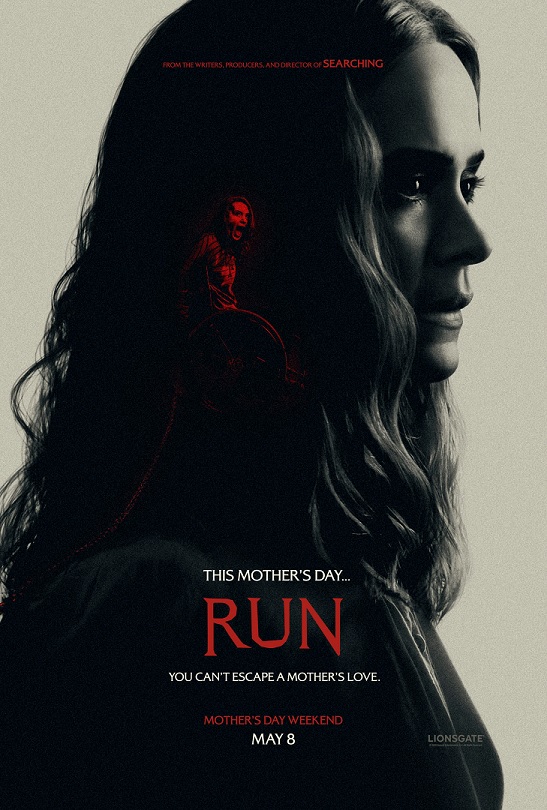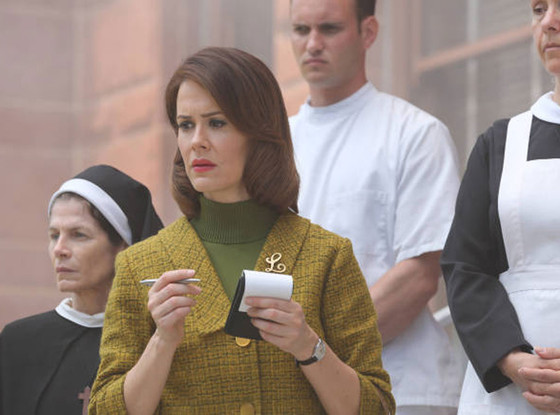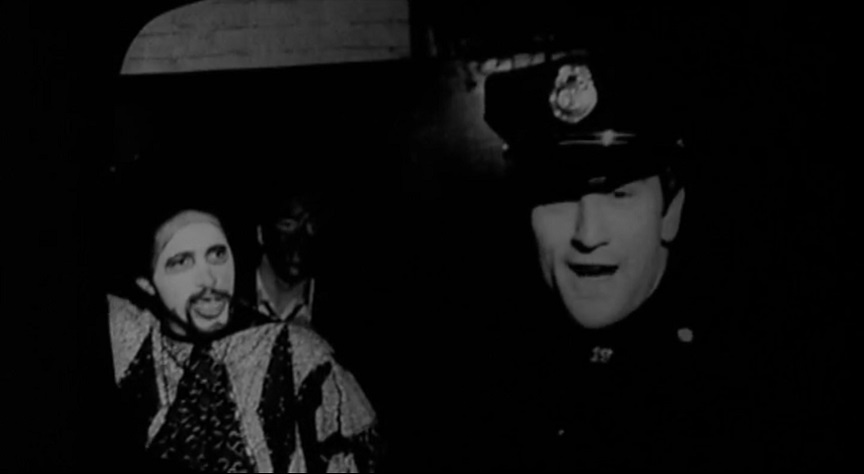. "
, who directed two of Travolta’s best and earliest movies, for example, looked at the strapping hunk and preeminent teen heartthrob and saw a man who could get things done working with his hands. In
, that meant possessing the technical know-how, nerves of steel and casual cruelty to pull off a prank for the ages. In
, Travolta’s hyper-efficient, exceedingly handy obsessive possesses the sharp mind, training and experience to solve the murder of a prominent politician and presidential candidate using only a recording of a fatal car crash, some pictures and some snooping. Travolta’s earliest vehicles focused on his raw sexuality and dreamy good looks but
standout as a grown-up who ekes out a living with his hands and his mind instead of that gorgeous face and muscular body."
The police and the powers that be are eager to write off the death as a tragic accident. But Jack is convinced that an assassin shot the tire of the car the night of the incident to cause the deadly accident and pores meticulously through tapes of the evening to piece together what happened and who is responsible. Jack’s obsessive exploration of the night of the accident puts him on a collision course with Burke (John Lithgow), the lunatic responsible for the blow out of the tire and the politician’s death. I don’t think it’s hyperbolic to call Lithgow’s glowering sociopath one of the greatest villains in the history of American film.
I would happily watch a Blow Out prequel focussed exclusively on Burke’s character, that illustrated exactly he came to be such a fascinatingly fucked-up, utterly amoral human being. Burke was ostensibly acting under orders when he shot the car but it’s apparent that the cold-blooded killer is always willing to improvise it means killing more people.
Burke seems like the kind of guy who got into the assassination game primarily because it affords so many literally killer opportunities to wrack up bonus murders in the form of witnesses, loose ends and pretty much anyone who needs to be killed, which in Burke’s mind is pretty much everyone in the world besides himself.
It’s crazy and impressive that Lithgow can simultaneously be the very image of genial, avuncular warmth and the scariest, most evil motherfucker alive, which is a good description of the mass murderer he plays here. Like Christian Bale in American Psycho, there’s an unfathomably vast emptiness at the core of his being where his soul and morals should be.
Like Patrick Bateman, Burke suggests a malevolent space alien who can only pretend to be a human being because he possesses no genuine humanity. Burke is an actor playing the role of someone with feelings and emotions and objectives beyond killing as many people as possible and getting away with it.
Though he occasionally works with, and for, other people, Burke is, at his core, a solitary man, a lonely figure cut off from the rest of humanity by his peculiar and unfortunate line of work and also his compulsion to kill in both socially sanctioned ways and just for fun and sport.
In the time-honored tradition of psychological thrillers, the solitary killer obsessed with tying up the loose ends on his biggest murder to date and the ex-cop obsessed with solving a crime the gaslighting powers that be insist doesn’t exist are weirdly simpatico figures, lonely men on lonely missions only they seem to understand.
In a lesser movie, that convention might qualify as hackneyed and cliched but DePalma, who wrote the screenplay as well as directing, breathes passionate life into this hokey old trope. DePalma knows how to get the most out of Travolta as an actor as well as a movie star.
Travolta is charismatic and magnetic enough to be absolutely riveting doing nothing more than listening for sounds but DePalma’s script gives him a real, nuanced character to play with a fascinatingly lived-in backstory and a code of ethics that sets him apart from every other character in the film.
Travolta’s obsessed sound man is moved to do what’s right even when he has nothing to gain by doing so and everything to lose. Everyone else is motivated by money or lust or power or convenience. In a world of scumbags, Jack is a decent man.
Blow Out is a product of the 1980s but it feels like a 1970s movie in many ways, including its very post-Watergate conviction that American audiences will inherently assume that politics, particularly at the very highest levels, are inherently corrupt and duplicitous, and consequently prone to believe conspiracy theories involving malevolent forces working furtively behind the scenes.
DePalma makes brilliant use of the star-spangled, flag-waving history hometown of his hometown of Philadelphia, particularly in regards to the Liberty Bell and a climactic patriotic parade to pointedly and ironically juxtapose our country’s idealized, romanticized past and ideals and its dark, dystopian contemporary reality, which is that bad people get away with murder and the truth is sometimes so deeply hidden that no one even thinks about looking for it.
Blow Out is a meticulous movie about a meticulous man, a masterpiece of total virtuosity from an auteur operating at the very apex of his ability. I know that there are lots of people who dislike DePalma for a wide variety of reasons, many of them quite valid, but watching Blow Out, I fell in love with DePalma as a filmmaker and a storyteller all over again.
THIS is filmmaking. THIS is mastery. THIS is the work of someone who knows exactly what he wants to do as a filmmaker and does it. DePalma is in total control of his craft. Everything pays off in a dark and inspired and unforgettable way, perhaps most famously the search for a convincing scream that opens the film.
Spoilers if you haven’t seen Blow Out yet, but Jack wires Sally with a microphone, who is murdered by Burke just before Jack can save her. Jack manages to kill Burke but he’s understandably despondent and, like many grief-ridden souls, throws himself into his work.
In a real Monkey’s Paw type situation, Jack achieves his goal of recording the most realistic scream in the history of slasher movies in the form of Sally’s dying noises. The scream sounds real because it is real. For the sake of verisimilitude, Jack transformed a genuine howl of death from someone in the process of being brutally murdered into the ultimate in hardcore sound effects.
It’s a shame that DePalma has to kill a character as sympathetic and messily human as Sally but this is DePalma so of course a movie that begins bleak, and only gets bleaker would end on a darkly hilarious, hilariously dark note.
The gut-punch of an ending helps explain why audiences at the time rejected Blow Out. Even by DePalma standards it’s grim and obsessed with the mechanics of film and the filmmaking process but it’s a thriller that’s also just about perfect. There is not a thing I would change about it, from the scumminess of a low-rent photographer played by Dennis Franz, winner of the Academy Award for Dirtiest Undershirt, to the director’s trademark use of split screens and deep composition.
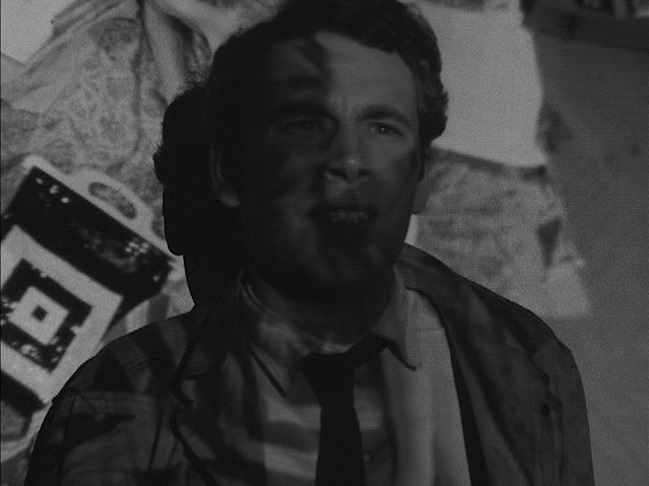




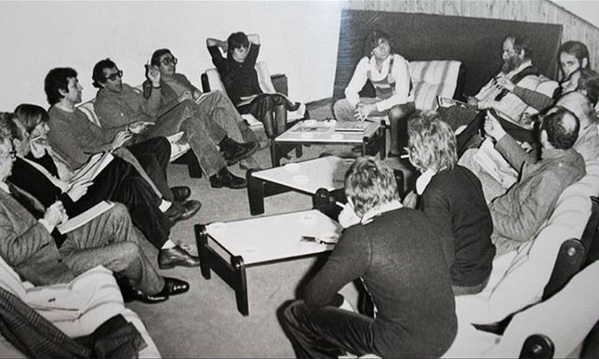

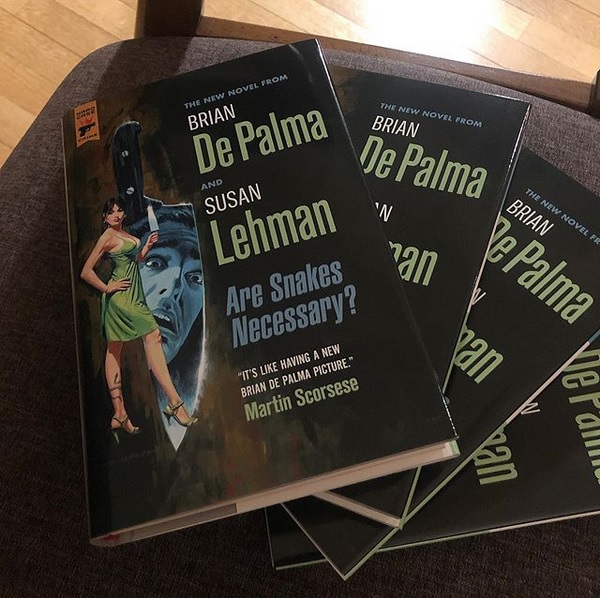
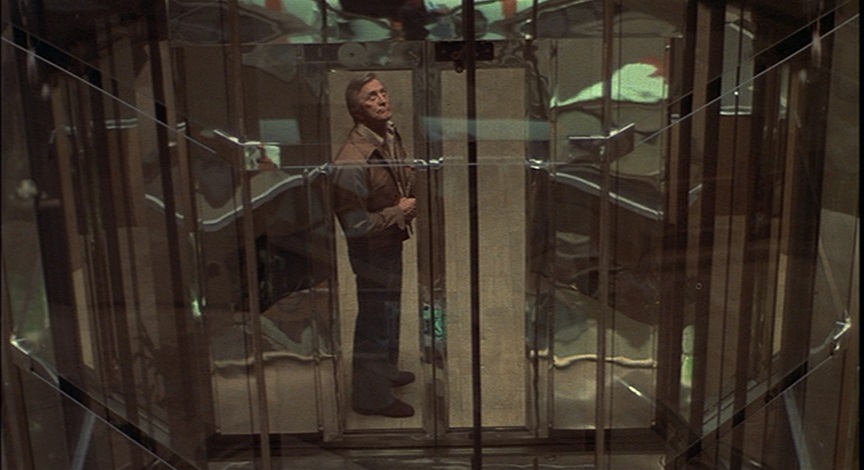




















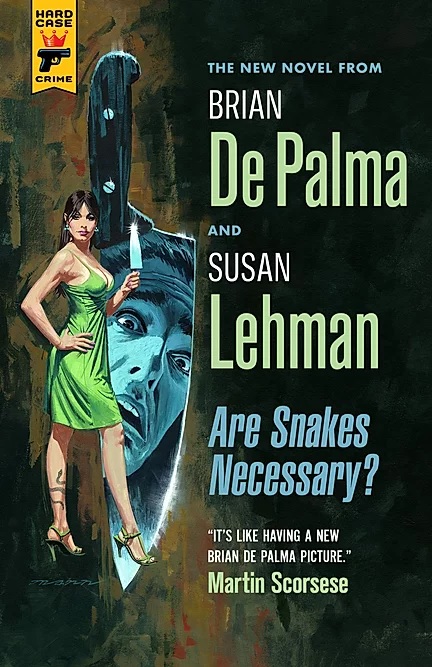 Are Snakes Necessary? hits the streets on March 17th, but some early reactions to the novel, co-written by Brian De Palma and Susan Lehman, are beginning to show up online. "Read Are Snakes Necessary? in one night and it really is like a Brian De Palma's greatest hits of obsessions, fixations and fetishes," author
Are Snakes Necessary? hits the streets on March 17th, but some early reactions to the novel, co-written by Brian De Palma and Susan Lehman, are beginning to show up online. "Read Are Snakes Necessary? in one night and it really is like a Brian De Palma's greatest hits of obsessions, fixations and fetishes," author 